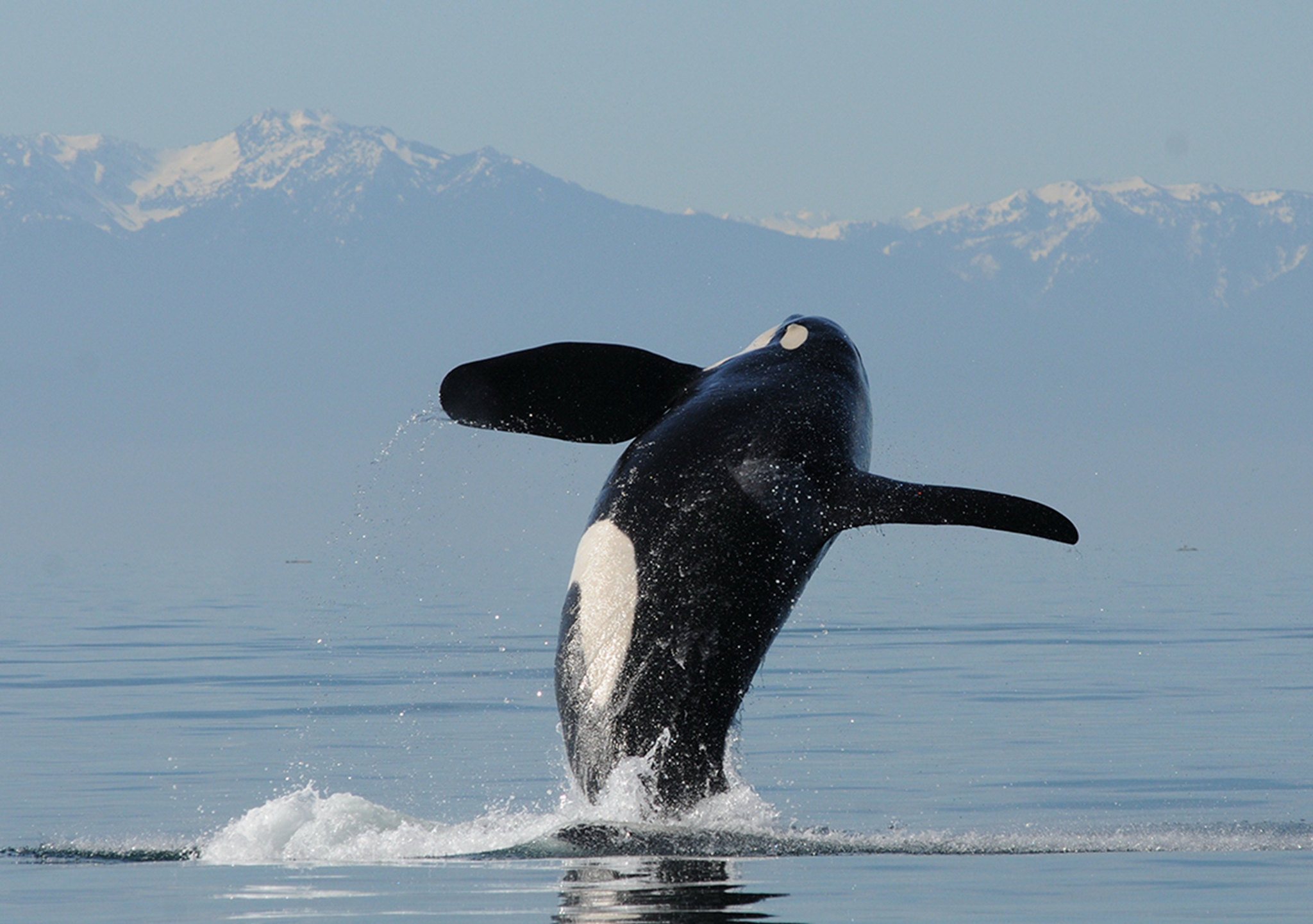On Wednesday, Dec. 21, an orca, who partially lived in the Salish Sea, was found deceased off the coast of British Columbia, Canada.
“The Whale Museum is devastated by this,” said Jenny Atkinson, executive director of The Whale Museum. “This is an endangered population that needs serious attention right now.”
The male, who was about 19 years old, was part of one of three sects that makes up the southern resident killer whale population, known as the J-pod, which mostly swims off the coast of Washington, Oregon and British Columbia, Canada. Islanders would probably recognize J-34, or DoubleStuf, as The Whale Museum nicknamed, thanks to his long, narrow dorsal fin.
The Center for Whale Research in Friday Harbor confirms that there are 25 remaining members of the J-pod, and three others were lost in 2016.
Even though J-34 was last seen in the Salish Sea in early December, welfare is difficult to assess from afar.
“It’s hard to tell from a glance,” said Atkinson. “We often don’t know something is wrong until they wash up.”
The Center for Whale Research reported that J-34 looked skinny last summer.
The Canadian Department of Fisheries and Oceans is performing a necropsy, or animal autopsy. Threats to the orcas, according to Atkins, are the lack of food from the reduced salmon population, compromised immune systems from toxins in their waters, vessel disturbance, and loud sounds from urban areas that prevent the orcas from communicating with each other and echolocating food.
“There is not enough food in the water for the whales,” said Deborah Giles, research director at the Center for Whale Research. “We need to do something rather quickly and drastically to recover the population.”
The population for southern resident killer whales is 79, according to the center, although it fluctuates as births and deaths occur.
DoubleStuf had most likely never fathered, as he was just reaching sexual maturity, said Atkinson. He could have potentially bred for about 40 years.
Southern resident killer whales have been listed as endangered since 2005. The Salish Sea is part of the whales’ critical habitat, which has features needed for its conservation, according to the Endangered Species Act.



